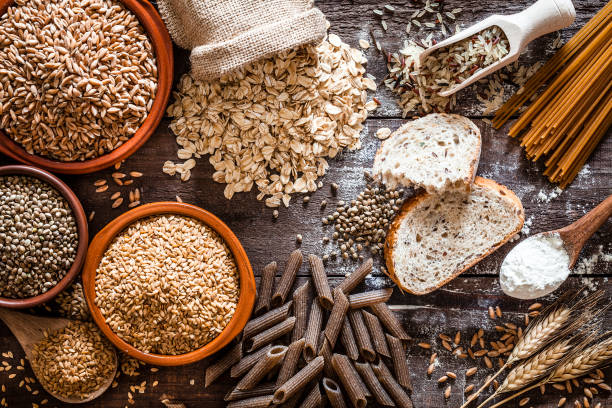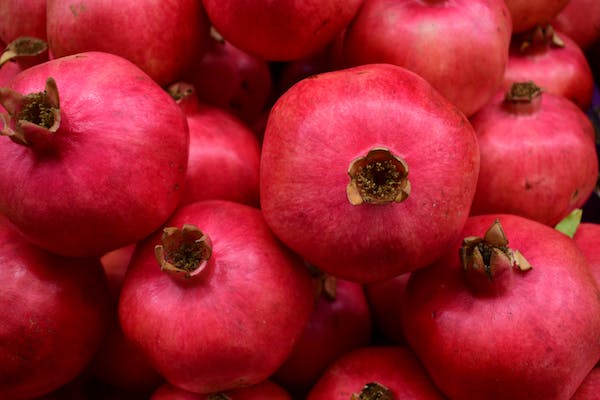In daily quest for optimal health, maintaining a well-balanced diet is of utmost pertinent. Whole grains are a major component that has received widespread recognition for their extraordinary health benefits.
Whole grains are grains that have not been refined. This signifies that the complete grain kernel, including the bran, germ, and endosperm, remains intact.
Refined grains, on the other hand, have had the bran and germ removed, which are the most nutrient-dense components of the grain.
Whole grains are perceived for their capability to upgrade general well-being since they are high in basic supplements, fiber, and cancer prevention agents.
In this article, we dig into their multiple health benefits, nutrition, potential hazards, and practical strategies for incorporating these nutritious foods into your regular diet.

What Exactly Are Whole Grains?
Before we critically look into the health benefits of whole grains, it is fundamental to comprehend what they are.
Whole grains will be grains that contain each of the three pieces of the grain part — the bran, germ, and endosperm. Not at all like refined grains, which have been deprived of the wheat and microorganism, whole grains hold their important supplements and fiber, settling on them a nutritious decision for a solid eating routine.
Health Benefits of Whole Grains
Because they provide so many health benefits, whole grains are essential to a balanced diet. Here are some extraordinary ways that whole grains might improve your health:
1. Promote Heart Health
The utilization of entire grains has been related with a diminished risk of coronary illness. Their high fiber content guides in bringing down cholesterol levels, decreasing irritation, and keeping up with solid circulatory strain, adding to generally speaking cardiovascular wellness.
2. Aid in Weight Management
Because whole grains are a source of insoluble fiber, which aids in the movement of food through the digestive system and gives your diet more mass, you will feel satisfied after eating them, which will help you limit your hunger and promote good weight management.
3. Lowers Blood Pressure
There are several benefits to eating whole grains for lowering blood pressure. Their high dietary fiber content, which includes both soluble and insoluble types, is a significant contributing element.
This fiber aids in lowering cholesterol levels, which relieves pressure on the heart and lowers blood pressure as a result. Likewise, whole grains contain compounds that invigorate the production of nitric oxide, a particle that advances vasodilation. By augmenting the veins, nitric oxide improves blood stream and adds to the bringing down of blood pressure.
Moreover, whole grains are rich in essential minerals like magnesium and potassium, which play crucial roles in blood pressure regulation. Magnesium aids in the relaxation of blood vessels, facilitating smoother blood circulation and ultimately supporting healthy blood pressure levels.
Contrarily, potassium balances the effects of sodium and aids in maintaining a healthy sodium-potassium ratio, which is essential for blood pressure regulation. People naturally consume less salt when they choose whole grains over processed grains, further supporting the best blood pressure control.
4. Enhance Digestive Health
Whole grains are an excellent source of dietary fiber, which promotes healthy digestion, prevents constipation, and supports the growth of beneficial gut bacteria, contributing to a healthy digestive system.
5. Whole grains and Type 2 Diabetes
Whole grains contain fiber, vitamins, antioxidants, and minerals, which can aid with blood sugar regulation.
Fiber slows glucose absorption into the system, which helps to reduce blood sugar rises. Blood sugar metabolism is aided by vitamins B1, B3, and B6, and antioxidants serve to protect cells from harm.
All unprocessed foods contain magnesium. Magnesium is abundant in nuts, unmilled grains, dark-green leafy vegetables, legumes such as peas and beans, and fruit. Magnesium is so easily accessible in foods that form the foundation of a healthy diet.
6. Rich in soluble starch
Soluble starch, a form of starch that has various health advantages, is abundant in whole grains. By avoiding constipation, soluble starch serves as a source of dietary fiber that helps maintain digestive health.
It also helps with blood sugar control by stabilizing glucose levels and having a reduced glycemic index.
Soluble fiber from soluble starch supports heart health by lowering cholesterol levels and aids in weight control by increasing satiety.
Soluble starch functions as a prebiotic, feeding good gut bacteria and promoting a balanced gut microbiota. People can benefit from soluble starch and enhance overall health by including a range of whole grains in their diet.
7. Provide Sustained Energy
Apart from being rich in soluble starch, the complex carbohydrates present in whole grains can also release energy slowly, providing a steady and sustained source of fuel throughout the day, promoting optimal energy levels.
Whole Grains and Their Nutrition
Whole grains are an excellent supply of several nutrients and dietary fiber, and they are suggested for children and adults in many daily portions, including a variety of foods that match whole grain-rich requirements, however, the kind of food varies.
Whole grains in morning cereals have been linked to increased micronutrient intake and a decreased risk of various illnesses.
Their impacts on gastrointestinal health, obesity risk, and cognition require additional investigation. They include a lot of fiber, vitamins (including B vitamins), minerals (such as iron, magnesium, and selenium), and antioxidants.
Whole Grains Risks
While whole grains are generally regarded as healthy and safe, there are a few considerations to keep in mind, particularly for individuals with specific dietary restrictions or allergies.
Here are some potential risks associated with whole grains:
Gluten Sensitivity: Individuals with celiac disease or gluten sensitivity should pick without gluten whole grain choices like quinoa, oats (marked sans gluten), amaranth, and millet.
Phytic acid: whole grains contain phytic acid, which can ruin the assimilation of specific minerals like iron, zinc, and calcium. Fermenting grains prior to cooking can help lessen phytic acid levels and improve mineral ingestion.
Tips for Eating Whole Grains
Adopting whole grains as part of a regular diet may be easy and pleasurable. Here are some helpful hints to make the most of these healthy foods:
-
Beginning with a wholesome breakfast: swap out refined grains with whole grain alternatives like whole grain toast, oats, or cereal.
-
Try a Few Different Varieties: Try out other whole grain varieties like quinoa, amaranth, or farro to learn more about the world of whole grains. These ancient grains offer unique flavors and textures, adding variety to your meals.
-
Mix and Match: Combine different whole grains like brown rice, barley, and bulgur to create delicious and nutritious side dishes or salads.
-
Choose Whole Grain Snacks: To fulfill your snack desires while feeding your body, choose whole grain snacks such as air-popped popcorn, whole grain crackers, or homemade granola bars.
-
Examine the Labels: Check the ingredient list for “whole grain” as the first ingredient when purchasing packaged goods to guarantee you are getting products with the maximum nutritional value.
Examples of Whole Grains
Whole grains are available in a variety of varieties, each with its own distinct flavor and nutritional profile. Here are some common whole grain examples:
-
Barley
-
Bulgur
-
Farro
-
Millet
-
Quinoa
-
Brown rice
-
Wild rice
-
Oats
-
Spelt
-
Amaranth
-
Buckwheat
-
Einkorn
-
Kamut
-
Khorasan wheat
-
Rye
-
Sorghum
-
Teff





